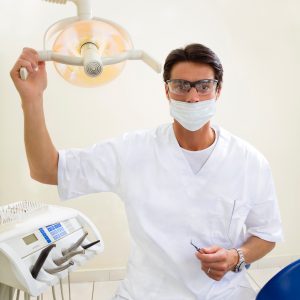Grit Your Teeth: Taking Care Of Your Mouth When You Can’t See The Dentist

Grit Your Teeth: Taking Care Of Your Mouth When You Can’t See The Dentist
April 15, 2020
As an agebuzz reader, you probably know how important dental health is to the broader goal of healthy aging. It’s clear that good dental hygiene is critical to your immune system, something we’re all concerned about these days. And of course, there’s nothing more nagging or irritating than dental pain and mouth problems. So, despite the expense of good dental care (something not everyone can afford), most of us seek it out, at least when it feels like something urgent may be going on. The problem is, now is not that time. With almost 200,000 dental practices around the country closed because of COVID-19, both patients and dentists alike are suffering, with a lack of access and lack of revenue causing distress to both caregivers and recipients.
As of April 1 of this year, the American Dental Association (the ADA) issued guidelines calling on dentists to postpone all non-urgent dental care during the coronavirus pandemic. In case it’s not obvious, dentists and dental practitioners are at serious risk of contracting and spreading the coronavirus, given the drills, syringes, and saliva that are a part and parcel of a typical dental practice. It’s also very hard to maintain social distancing at a dental office. So what does that mean in terms of your usual dental care? Put the cleanings and precautionary x-rays on hold. And the most obvious advice is to take extra good care of your teeth at home now. Such as? Daily brushing and flossing, switching to an electric toothbrush if available, using a non-alcohol based mouthwash (but don’t use an antibacterial mouthwash or toothpaste as you don’t want to upset the microbiome in your mouth) and finally, remember to disinfect your toothbrush (try mixing mouthwash and hydrogen peroxide) especially if your toothbrush sits close to the toilet in your bathroom. And what about food? Now would be a good time to cut back on the popcorn (apparently the number one cause of dental emergencies) and starchy or sugary foods that can damage your tooth surface or exacerbate your plaque build-up.
While calling your dentist or perhaps even setting up a video call to discuss your dental problem may be necessary, some of you may indeed have true dental emergencies that will require an in-person consultation and treatment. Dentists do have an ethical obligation to respond to your dental emergencies, and that response will be shaped by a number of factors. Not every pain in your mouth necessarily spells serious trouble requiring emergency attention, and not every problem requires an in-person visit. It’s possible through a phone or video chat, a dentist may be able to prescribe an antibiotic or OTC pain medication without seeing you. The ADA has a list of what is considered an emergency requiring immediate dental care. So, for example, a broken or knocked-out tooth, or uncontrollable bleeding would likely require immediate attention. It’s clearly better for you to be seen in a dental office than going to a hospital emergency room right now. So, when in doubt, contact your dentist and discuss the situation. Better to be safe than sorry but in this climate, best to stay safe.







